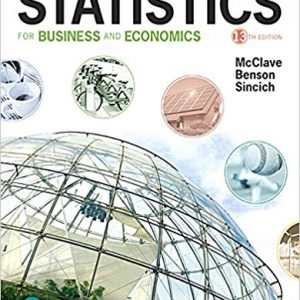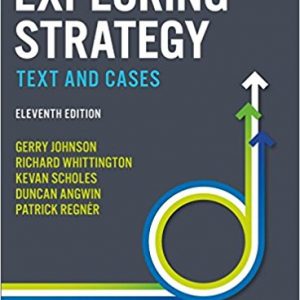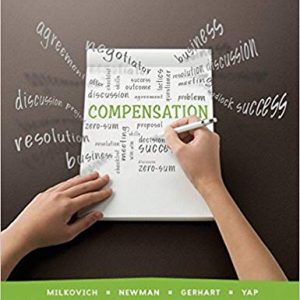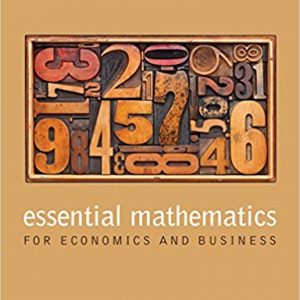No products in the cart.
BUSINESS
 Loading...
Loading...
Business Ethics A Textbook with Cases, 9th Edition William H. Shaw Instructor Manual
Business Ethics A Textbook with Cases, 9th Edition William H. Shaw Instructor Manual
Business Ethics
( Instructor Manual)
Business Ethics A Textbook with Cases, 9th Edition William H. Shaw Instructor Manual
Edition: 9thEdition
Author Name: William H. Shaw
contact:
Whatsapp +1 (949) 734-4773
for the Facebook page click here
for more books for ( Test Bank and Solution Manual) click here
sample free
 Loading...
Loading...
$39.00 $50.00
Business Ethics A Textbook with Cases, 9th Edition William H. Shaw Instructor Manual
Business Ethics
( Instructor Manual)
Business Ethics A Textbook with Cases, 9th Edition William H. Shaw Instructor Manual
Edition: 9thEdition
Author Name: William H. Shaw
contact:
Whatsapp +1 (949) 734-4773
for the Facebook page click here
for more books for ( Test Bank and Solution Manual) click here
sample free
CHAPTER 1
The Nature of Morality
Learning Objectives
After completing this chapter students should be able to:
- Define the nature and sources of ethical and moral standards.
- Distinguish between moral and non-moral questions.
- Examine our business environment and debate the extent to which business ethics differs from ethics in other contexts.
- Connect personal moral codes to behavior.
- Recognize some of the social and psychological factors that can affect moral decision making.
- Use standard logic and argument processes to make moral judgments.
Glossary
- argument: Perhaps the most important element of moral reasoning, which is a group of statements. One or more of these statements are premises and one of them is a conclusion. The premises are reasons to believe the conclusion.
- argument form: The form of reasoning an argument uses. The same form of reasoning can underlie different arguments and statements. The argument “All men are mortal, Socrates is a man, therefore Socrates is mortal” uses the argument form “All A are B, C is a B, therefore C is an A.” Argument forms can be valid or invalid.
- conclusion: A statement of an argument. Arguments are meant to give us reasons to believe conclusions. Arguments are often given to persuade people to believe something—the conclusion.
- considered moral beliefs: Considered moral beliefs or are our intuitive moral beliefs that we are still confident are true after thinking them through. They are our refined common sense. We should consider objections and counterexamples to our intuitive beliefs to make sure they aren’t merely based on a hunch or prejudice. Considered moral beliefs can be taken to be provisionally true and they can be used in moral arguments.
- counterexample: Proof that an argument is invalid or a belief is false due to the existence of an incompatible fact. Logical counterexamples prove argument forms to be invalid because they use an argument’s form and have true premises, but a false conclusion. Informal counterexamples can be used as objections to beliefs.
- divine command theory: The belief that immoral actions are immoral just because God says they are immoral
- premises: The statements used to justify a conclusion when we give an argument.
- sound arguments: Arguments that are valid and have true premises. An argument is unsound when these conditions aren’t met.
- valid arguments: Argument forms are valid when it’s impossible for the premises to be true and the conclusion to be false at the same time. Invalid arguments can have true premises and a false conclusion at the same time. It’s important for arguments to be valid or they’re unreliable. We can’t trust the conclusions of invalid arguments even if the premises are true.
Chapter Summary Points
- Morality deals with individual character and the moral rules that are meant to govern and limit our conduct. It investigates questions of right and wrong, duty and obligation, and moral responsibility. ‘Ethics’ can be used as a synonym for ‘morality’ but it can also refer to ‘moral philosophy.’ Philosophy is a quest for knowledge through reason. Moral philosophy can help us attain improved moral opinions by learning how to apply logic and good reasoning to morality. We can do this (in part) by considering multiple perspectives, arguing, and theorizing.
- Business ethics is a form of moral philosophy that helps us determine what’s morally right or wrong in a business (or organizational) context.
- Moral standards concern behavior that has serious consequences for human well-being, and they take priority over other standards, including self-interest. Their soundness depends on the adequacy of the reasons that support or justify them.
- Morality must be distinguished from etiquette (rules for well-mannered behavior), from law (statutes, regulations, common law, and constitutional law), and from professional codes of ethics (the special rules governing the members of a profession).
- Morality is not necessarily based on religion. Although we draw our moral beliefs from many sources, for philosophers the issue is whether those beliefs can be justified.
- Ethical relativism is the theory that right and wrong are determined by what one’s society says is right and wrong. There are many problems with this theory. Also dubious is the theory that business has its own morality, divorced from ordinary ideas of right and wrong.
- Accepting a moral principle involves a motivation to conform one’s conduct to that principle. Violating the principle will bother one’s conscience, but conscience is not a perfectly reliable guide to right and wrong. Many psychologists think our conscience is developed by internalizing parental demands, but such demands are not necessarily justified.
Part of the point of morality is to make social existence possible by restraining self-interested behavior. Sometimes doing what is morally right can conflict with one’s personal







There are no reviews yet.